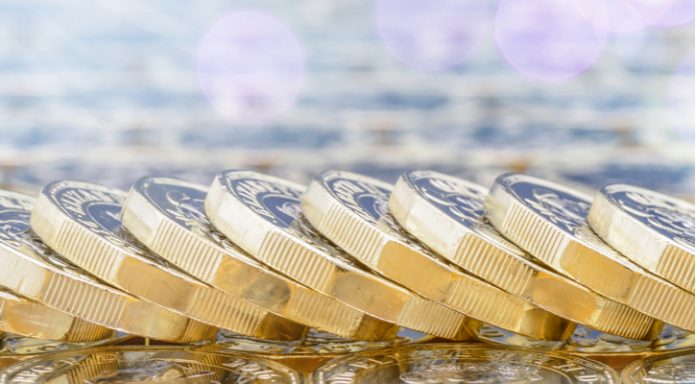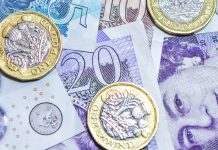- Pound (GBP) rises after record wage growth
- UK CPI inflation data is due
- Euro (EUR) falls after mixed German ZEW data
- Eurozone GDP data is due
The Pound Euro (GBP/EUR) exchange rate is holding steady after three straight days of gains. The pair rose +0.2% in the previous session, settling on Tuesday at €1.1648 and trading in a range between €1.1613 – €1.1665. At 06:35 UTC, GBP/EUR trades +0.00% at €1.1648.
The pound is rising as attention turns to UK inflation data later today, which analysts expect to show a cooling in consumer prices to 6.8% year on year, down over 1% from 7.9% in June. However, core inflation, which discounts more volatile items such as food and fuel, is only expected to cool modestly to 6.8% year on year from 6.9%.
The data comes after UK labour market data yesterday showed that wage growth hit a record high in the three months to June, rising 8.2%, well above the 7.4% forecast. Strong wage growth keeps pressure on the Bank of England to keep hiking interest rates even after 14 back-to-back rate hikes. Strong wage growth and hot inflation keep pressure on the central bank to keep hiking.
However, unemployment did unexpectedly tick higher to 4.2%, up from 4%, showing that some signs of weakness are starting to seep into the labour market.
The euro came under pressure in the previous session despite German ZEW economic sentiment improving in August. The economic sentiment index rose to -12.3, up from -14.7 in July and ahead of the -14.7 forecast.
However, the ZEW current conditions index dived to -71.3, its lowest since October 2022 and below the -63 forecast. However, the eurozone ZEW economic sentiment and current situation index turned more optimistic.
Looking ahead attention will be on the eurozone economic growth data. Analysts are expecting the GDP Q2 second reading to confirm 0.3% quarter on quarter, up from 0% in Q1. Weaker-than-expected GDP data could fuel bets that the ECB are close to concluding its rate hiking cycle, pulling the EUR lower.





